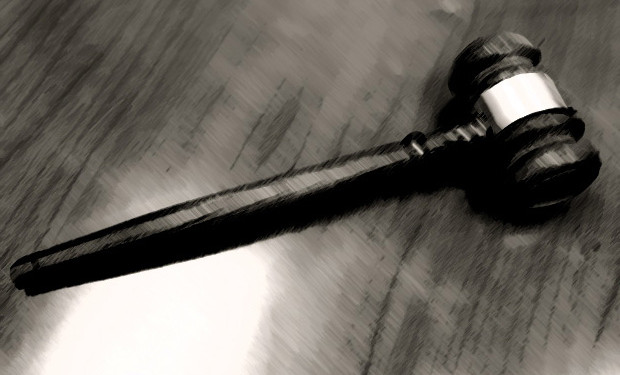Ousting a District Attorney: What Happened to Tracey Cline
On March 2, 2012, Durham District Attorney Tracey Cline was removed from office. A portion of Judge Robert Hobgood’s order removing Cline read as follows:
“Tracey E. Cline has lost the confidence of the attorneys and the public necessary to continue as an effective District Attorney for Durham County . . . By recklessly making blatantly false allegations against Judge Hudson in public record totally lacking in factual support, attacking his morality, honesty and asserting that he is corrupt, Tracey E. Cline has crossed the line of protected speech under the First Amendment.”
The decision came only weeks after Durham attorney Kerry Sutton had invoked a rarely-used statute and called for Cline’s removal. While the process may seem rushed, the statute itself requires such swift action. North Carolina General Statute §7A-66 allows the Superior Court Judge who receives the complaint only thirty days to review and act on the charges. Although some lawyers have argued the process is unfair and the decision should be made by the North Carolina State Bar, the statute is efficient.
The constitutionality of N.C.G.S §7A-66 came to the forefront in the mid-1990’s when the statute was used to remove a District Attorney for the first time. On June 30, 1995, Jerry Spivey, District Attorney for the Fifth Prosecutorial District, was ejected from a bar in Wrightsville Beach for repeatedly addressing a black patron with racial slurs. As a result of this incident, multiple affidavits seeking his removal were filed. A hearing was held and Spivey was removed. Spivey appealed the decision, claiming the statute itself was unconstitutional. However, the court ultimately concluded North Carolina’s constitution did not prohibit the General Assembly from having a statutory scheme for governing removal of district attorneys, thus the statute was held constitutional.
Cline was elected as District Attorney after Michael Nifong was disbarred by the North Carolina State Bar. However, Nifong was not removed under N.C.G.S. §7A-66—his removal from office was a result of the State Bar’s disciplinary order disbarring him. Although an affidavit was properly filed to have Nifong removed under N.C.G.S. §7A-66 prior to the State Bar’s disciplinary order. The affidavit filed by a Durham resident alleged that Nifong’s actions constituted willful misconduct and conduct prejudicial to the administration of justice. Superior Court Judge Orlando Hudson issued a stay regarding any action in response to the affidavit pending the hearing by the State Bar.
Cline’s situation is distinctive as she is being investigated by the North Carolina State Bar for her treatment of evidence in six cases after several articles appeared in the News and Observer in a series entitled “Twisted Truth.” The articles explored Cline’s treatment of Frankie Washington and claimed such treatment was improper, misguided, and based on fabricated information. Allegations of lying to the tribunal, withholding and even destroying evidence abounded in the series of articles. The articles were not alone in these allegations as Chief Superior Judge Orlando Hudson made similar allegations when he dismissed a case for lack of evidence. These articles did more than prompt the North Carolina State Bar to investigate; the articles spawned an attack on Chief Superior Judge Orlando Hudson, culminating in Cline’s motion to have him removed from criminal cases in Durham.
Cline went on attack and claimed Hudson was in cahoots with the local media to discredit her. She accused Judge Hudson of bias, but the accusations were considerably more colorful. In court documents filed by Cline, she accused Hudson of “raping” the victims, of having blood on his hands, and numerous other unfavorable accusations. In November 2011, Cline filed a Notice of a Conflict of Interest between the state and the court. In this notice, she alleged the Court’s action “encompasses conduct involving moral turpitude, dishonesty and corruption.” She further alleged that Judge Hudson “sacrifices justice” to “punish” her and that he had “kidnapped the rights of victims and their families” and was “holding them hostage” until she would play his “game.” Cline also filed a complaint with the Judicial Standards Committee.
Cline transformed the situation into a war between herself and Hudson, and the legal community did not stand by idly. The affidavit to have Cline removed alleged “habitual intemperance” and “conduct prejudicial to the administration of justice.” The judge slated to review the case was none other than Chief Superior Judge Hudson, so Judge Hudson appointed Judge Robert Hobgood from Franklin County to preside over the hearing as allowed under the statute.
Cline was removed as a result of the hearing, and her attorney has said they will appeal the decision. During the hearing, several individuals joined together and formed the group “Justice for Durham Attorneys.” The group, led by former City Council candidate Victoria Peterson, has attacked the validity of N.C.G.S. §7A-66. The Herald-Sun of Durham reported the group sent a letter to the Judicial Standards Commission requesting an investigation into the removal of Cline. Peterson was unavailable for comment.
Although Cline’s removal under N.C.G.S. §7A-66 pulled her from the office of District Attorney, this removal did not affect her ability to practice law in North Carolina as the State Bar still has the independent right to discipline Cline.
Tommi E. Powell is a second-year student and staff writer for the Campbell Law Observer. Tommi can be contacted at tepowell0512@email.campbell.edu.

